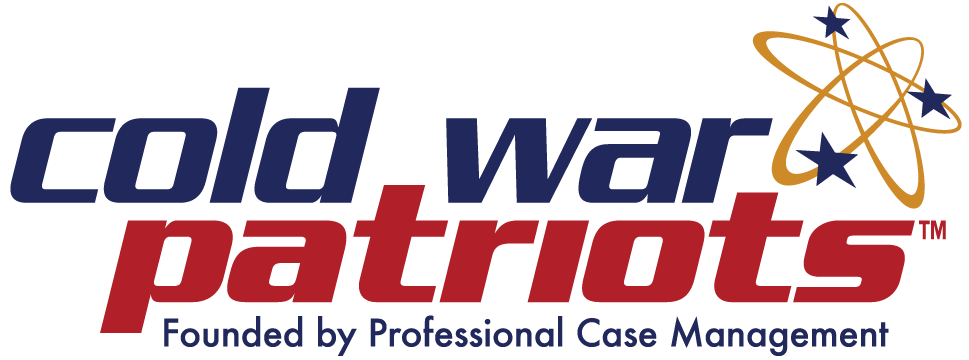
| CWP
Has Your Claim Been Denied?
June 7, 2023
June 7, 2023
CWP
5 steps you should take to reopen your EEOICPA application
Since the year 2000 when the Energy Employees Occupational Illness Compensation Program Act (EEOICPA) was passed, about half of applicants have been denied EEOICPA benefits. Has this happened to you?
Just because you’ve received a denial letter doesn’t mean you should give up. There are steps you can, and should, take to have your case reopened and reevaluated by a Department of Labor (DOL) claims examiner.
- Understand the program
EEOICPA is a complex program, so don’t hesitate to reach out and ask for help. Cold War Patriots, as a division of Professional Case Management, created its Outreach Help Center to support workers just like you to better understand the program and walk you through the application process to improve your chances of being approved for benefits.
It’s important to know that EEOICPA is divided into two parts—Part B and Part E. Part B covers claims for many forms of cancer, as well as chronic beryllium disease and silicosis. Part E claims can cover ANY diagnosed illness that may have been caused by your coming into contact with a toxic substance while working at a covered facility. If you’re a Department of Energy contractor or subcontractor, you may be eligible to file under both Part B and Part E.
- Understand the differences between Part B and Part E
If you filed a cancer claim under Part B, you need to understand dose reconstruction, because this is what will be performed on your claim by the National Institute of Occupational Safety and Health (NIOSH). Stated simply, dose reconstruction is the scientific process that NIOSH uses to estimate your past exposure to radiation.
In evaluating your risk, NIOSH will consider what type of work you performed, as well as how much radiation exposure you had and over what length of time. Ultimately, NIOSH is trying to determine if your covered employment resulted in your cancer.
In order for you to be approved for benefits, it must be determined that there is at least a 50% chance that your cancer was caused by your covered employment. This is known as the probability of causation factor and, if it’s less than 50%, your claim will be denied. Unfortunately, the reality is that more than half of claims involving NIOSH dose reconstruction end in a denial. Your chances of being approved depend on your personal situation, including where you worked and for how long.
Are there ways to get your cancer claim approved without dose reconstruction? Possibly, but you would likely have to prove that you’re a member of what’s called a Special Exposure Cohort (SEC). This is a uniquely defined category of employees who have at least one of the covered 22 SEC cancers and who have worked for a specific period of time at one of the SEC Work Sites. If you’ve worked at multiple sites over your career, you may qualify if any one of those sites is SEC-eligible. Approximately 70% of EEOICPA Part B cancer cases are awarded benefits via the SEC rather than dose reconstruction. The Cold War Patriots Outreach Help Center can help you determine if you are part of one of these covered groups.
Even if your cancer claim was denied under Part B, you could still be approved under Part E, which operates like a traditional workers’ compensation program. It pays cash benefits based on impairment and wage loss and provides medical benefits if you were exposed to toxic substances on the job.
You are eligible for Part E benefits if it is “at least as likely as not” that exposure to a toxic substance at a DOE facility caused, contributed to, or aggravated your illness or death. Information about the type of toxic substances that may have been at your specific worksite(s), as well as proven links between those substances and recognized occupational illnesses, can be found on the Site Exposure Matrices (SEM) website. The Cold War Patriots Outreach Help Center can guide you through the SEM database to help you find the information you need to support your claim.
- Identify the exact reason(s) for denial
Some of the more common reasons for claim denial include:
- Failure to meet NIOSH causation standard during dose reconstruction
- Insufficient evidence of exposure to radiation or known toxic substances linked to the claimed illness
- Lack of one or more important medical records or test results
- Lack of a well-rationalized medical opinion letter from an appropriate doctor citing accepted medical studies or research
- Incomplete or lack of proof of employment for all or part of your work history
- Inability of the Claims Examiner to link exposures to the illness claimed
- Confirm you meet the necessary criteria for reopening a claim
Depending on the reason(s) for your denial, you may be able to have your application reopened. You can’t simply protest a denial and ask the DOL to re-evaluate a claim, however. The DOL has very specific standards for reopening a claim, and you must meet at least one of the below criteria before the DOL will agree to take another look:
- There is additional medical, scientific or factual employment information not included in the first claim that is available now.
- Additional or new medical research or well-rationalized medical opinions in support of the claim are now available.
- Specific errors of fact were found in the original claim that, when corrected, could result in an approval.
- Get assistance in reopening your claim
What can you do to improve your chances of getting your claim reopened? Essentially, you have two options:
- Hire a professional advocate who has the necessary experience to help strengthen your claim. Note that professional advocates often charge for their services but, by law, they can charge no more than 10% of the financial compensation you receive if your claim is approved. The Cold War Patriots Outreach Help Center can help connect you with an experienced advocate.
- If you prefer a do-it-yourself approach, you can gather the necessary evidence and reopen the claim yourself by contacting the U.S. DOL office that originally denied your claim. However, we strongly recommend you speak to our Outreach Help Center in advance to better understand the process.
The bottom line is that you need not take “no” for an answer automatically. EEOICPA was passed by Congress to recognize the efforts and sacrifices of nuclear defense workers like you. So make sure you do everything possible to receive the benefits and compensation you have earned.
The first step is knowing what steps you should take to improve your chances of having your claim re-opened. The Cold War Patriots Outreach Help Center is here to help. Call today at (888) 903-8989 or email [email protected].
